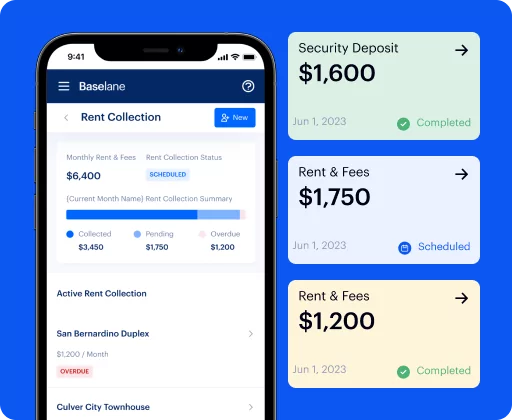Over the last few years, active vacation rental property listings in the US have gone up 56% as more investors and property owners are capitalizing on the rising demand for short-term rentals.
With a growing supply of alternative accommodations for travelers and remote workers, here are some steps that will help you learn how to manage a vacation rental like a pro and keep your booking calendar full.
Key Takeaways:
- Vacation rentals, properties rented out for short leisure stays, have grown significantly in the US, with 1.6 million listings in 2023.
- Benefits of vacation rental properties include extra income and tax benefits, but there are additional operating costs and regulatory hurdles.
- Successful short-term rental management requires legal compliance, budgeting, smart technology, property management software, and a focus on guest experience.
Advantages and Disadvantages of Vacation Rentals
While the vacation rental market can be a lucrative investment, it comes with a few challenges.
Advantages
- Extra Income: According to AirDNA, the average annual revenue from full-time short-term rentals (STRs) reached $56,000.
- Tax Benefits: Vacation rentals offer tax deductions similar to long-term rentals, including operating expenses, short-term rental property insurance, and depreciation to reduce taxable income.
- Flexibility: Owners can use the property for personal vacations and adjust prices based on demand, season, and local events.
- Higher Average Daily Rates (ADRs): With the right amenities and location, vacation rental managers can charge higher daily rates for better returns.
Disadvantages
- Operating Expenses: Vacation rental investment properties typically cost more for frequent repairs, utilities, booking fees, and property management fees compared to long-term rentals.
- Higher Vacancy Rates: Seasonal fluctuations can lead to higher vacancy rates during off-seasons, impacting rental income.
- Time and Effort: Managing a holiday rental property requires more involvement in guest communication, the booking process, and property maintenance.
- Regulatory Challenges: Some areas have strict house regulations or bans on short-term rentals. For example, San Francisco limits short-term rentals to 90 days per year.
- Guest Reviews: Vacation rentals rely heavily on positive reviews for success. One bad review can significantly impact occupancy rates.
How to Manage Vacation Rental Property
Managing vacation rentals requires a strategic approach that combines vacation rental software and high-quality guest services that get you 5-star reviews and better returns on your vacation rental investment. To effectively manage vacation rentals, follow these steps:
1. Understand Legal and Tax Implications
Research local short-term regulations before buying a vacation rental property. Some rental policies can limit your return on investment. For example, New York short-term rental stays must be a minimum of 30 days. This excludes potential guests booking shorter trips, which are usually around five nights on average across vacation rental channels.
Regarding taxes, you must report income collected from a vacation home if it’s rented for more than 14 days a year. However, you can deduct operating expenses and other costs for vacation rental property management.
The table below is an example of how different laws can be between states. Make sure to check your state laws to avoid headaches in the future.
| State | Licensing Requirements | Taxes |
|---|---|---|
| Florida | All vacation rentals must be licensed through the Florida Department of Business and Professional Regulation (DBPR). | Income tax paid annually to federal and state governments.
State sales tax: 6%. County-imposed sales surtax varies. Local option transient rental tax varies. |
| New York | No statewide requirements for short-term rental licenses and permits, but local cities and towns may have strict licensing requirements. | State sales tax: 4%. Local sales taxes and local lodging taxes. |
| Texas | No state-level license required, but major cities may have specific licensing requirements. | State hotel occupancy tax: 6%. Local lodging tax collected by local tax authorities. |
| California | Many cities require hosts to register their units and get a license or a permit. | Transient occupancy tax (TOT) varies between counties and cities, generally ranging from 6% to 14%. |
2. Calculate Start-Up and Ongoing Costs
Initial costs for a vacation rental include safety updates, furnishing (average $9000-$15,000 for a two-bedroom property), and utility setup. Use tools like AirDNA for market-specific income forecasts and compare costs for running a vacation rental business.
Budget for ongoing expenses, such as property management fees (typically 10-30% of rental income), maintenance (around 1% of the property value annually), and utilities (around $200 per month).
3. Optimize Pricing Strategy
Pricing depends on location, amenities, property size, and other factors. Vacation rental industry data can help you set initial nightly rates. You may need to adjust rates depending on the season.
To set the right rental rate, start by analyzing the local vacation rental market. Look at prices for similar properties nearby. For instance, if you have a two-bedroom rental in Orlando, use average daily rates as a guideline for pricing.
Also, consider occupancy rates and operating costs. Your vacation rental income should cover expenses and generate profit, but setting rates too high risks vacancies. Seasonal demand and amenities can help justify higher rates during peak times.
4. Implement Smart Home Systems
Smart home systems can enhance the guest experience and streamline vacation rental management. A basic smart thermostat that costs $200 can help cut energy costs while allowing remote temperature control. Pricing for a security system starts around $100, which can increase property and guest safety.
5. Automate Check-In and Check-Out
Smart locks (approximately $200-$300 each) are a great way to automate guest check-in and check-out. Guests can enter the property using a unique code that you can change for each booking. This way, you don’t have to coordinate schedules for dropping off and collecting keys.
6. Consider Hiring a Property Manager
A vacation rental property manager can handle guest-related tasks, including booking calendars, guest messages, maintenance requests, emergency issues, property maintenance, and more. Outsourcing these tasks can be a convenient option if you manage vacation rental property remotely.
Depending on the manager or vacation rental management company, fees can range from 10% to 50% of rental income.
7. Find Reliable Contractors
Research local service providers for plumbing, electrical work, maintenance, and repairs. Costs vary depending on where you live, the contractor’s experience, and the severity of the problem. For example, an emergency plumber usually charges $120 to $300 an hour on nights and weekends, and $225 to $450 or more on holidays.
8. Hire a Professional Cleaning Service
Scheduling cleaners between bookings will help keep the space well-maintained and ready for future guests. Vacation rental sites usually charge guests a cleaning fee that covers these costs.
Cleaning fees vary depending on property size. In 2023, the average cleaning fee in the US for a private/shared room on Airbnb was $48 per stay, while the average fee for a house with five bedrooms reached $303.
9. Advertise Your Vacation Rental
List your property on popular booking sites like Airbnb or VRBO to increase visibility and attract a wide range of local and international guests. To make your online listing stand out, post high-quality photos and a compelling description highlighting your property’s unique amenities and features.
Remember to check each platform’s fees. For instance, Airbnb typically charges a 3% booking fee.
10. Focus on Guest Experience
Small touches like a welcome basket (around $10-$15) add significant value that can improve guest retention for future bookings. Consider adding local snacks, a local map, and a personalized welcome note.
Provide a book with some details about the surrounding area. Include local attractions, restaurant recommendations, nearby grocery stores, public transportation, emergency contacts, and house rules. You can even have a page for guest reviews.
11. Use Vacation Rental Management Software
Vacation rental booking sites have basic tools for reporting income, but they don’t track operating costs or other passive income from rental properties. Rental management software like Baselane helps real estate investors and landlords automate income and expense tracking.
Baselane tags each transaction by property and Schedule E category for simple tax preparation. You can also monitor income and cash flow and generate financial reports in real-time to analyze vacation rental performance. Additional property management services include online rent collection, landlord banking, rental property insurance, and more.
Final Thoughts
A successful vacation rental business has a lot of moving parts. Managing reservations, guest communication, and property maintenance can make staying on top of finances a challenge.
Property management software like Baselane can help simplify rental finances with accounting, banking, and rent collection built for landlords and investors. Automate income and expense tracking, bookkeeping, rent payments, and more all on one user-friendly platform.
Book a FREE demo to see how Baselane can help you with your rental property management.






